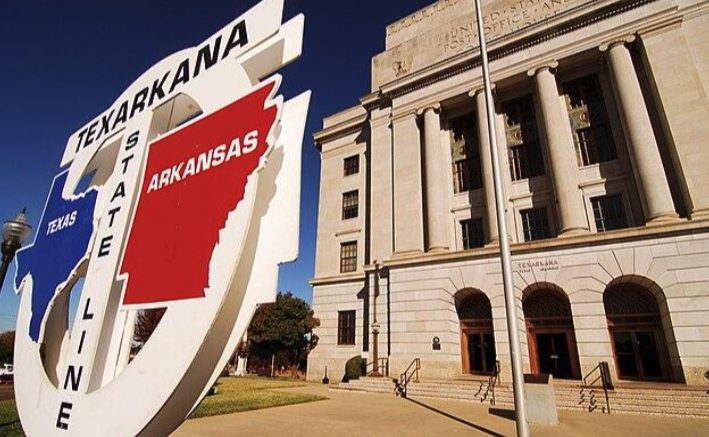Gambling
Current Gambling Regulation & Legislation in Texarkana 2024 | Texarkana Today

Texarkana is a unique city, straddling the state lines of Texas and Arkansas. The city’s location creates an interesting duality in gambling laws and regulations. Texas, with its stringent anti-gambling laws, presents a sharp contrast to Arkansas, where a more lax attitude has allowed the gambling industry to thrive. This article delves into the history, current regulations, public attitudes, and ongoing debate over the legalization of gambling in Texarkana.
Current Regulations and Legislation Around Gambling
Texas: Texas gambling laws are quite strict. With very few exceptions, most forms of gambling, like online casino, gambling and slots, are illegal. The state allows the Texas Lottery, charitable bingo, and pari-mutuel wagering on horse races. Casinos, sports betting, and online gambling remain prohibited. The Texas Penal Code Section 47 outlines the illegal status of most gambling activities.
Arkansas: On the other hand, Arkansas has embraced a more liberal approach to gambling. Following a 2018 constitutional amendment, four casinos were legalized, and sports betting was permitted. The Arkansas Racing Commission oversees the regulation and licensing of these casinos. Since the amendment, significant establishments like Oaklawn Racing Casino Resort in Hot Springs and Saracen Casino Resort in Pine Bluff have become substantial economic contributors.
Texarkana’s unique position straddling the Texas-Arkansas border means that residents are somewhat accustomed to the vastly different gambling regulations depending on which side of the city they live in. This split shows how state gambling laws affect local communities in various ways and is reflected in how the public views gambling.
Public Attitude Towards Gambling
Public opinion on gambling in Texarkana is split based on the broader attitudes in Texas and Arkansas.
Texas: A 2024 survey conducted by Spectrum News revealed strong support for expanded gambling in Texas. The poll showed that 47% of Texans favor allowing destination resort casinos in the state, while a similar proportion supports legalizing sports betting. This data indicates a growing acceptance of gambling to boost the state’s economy and create jobs.
Arkansas: Public support for gambling has been more consistent in Arkansas, especially after the 2018 constitutional amendment we discussed above. The success of gambling establishments in Arkansas and the economic benefits they bring have, understandably, contributed to a generally favorable public attitude toward gambling.

So, what about Texarkana in particular? There’s not much data available, but community leaders and religious groups in Texarkana often voice strong opposition to gambling, highlighting moral and ethical concerns. Their influence is particularly pronounced in Texas, where gambling remains largely banned. On the Arkansas side, however, there is a more pragmatic acceptance of gambling as a revenue-generating activity.
Public opinion notwithstanding, there are several pros and cons to legalization.
Pros and Cons of Legalization
Looking at the results of legalization in Arkansas and the lack thereof in Texas, it’s clear to see how the legalization of gambling in Texarkana would come with its fair share of pros and cons, namely:
Pros:
- Economic Growth: Legalizing gambling could significantly boost the local economy. Arkansas’s gambling industry has contributed substantially to state revenues. In 2023, gambling revenue reached $686.6 million, according to the American Gaming Association.
- Job Creation: Casinos and related gambling establishments create numerous jobs. The American Gaming Association reported 9,044 supported jobs in Arkansas.
- Infrastructure Development: Increased revenue from gambling could fund public infrastructure projects, improving the overall quality of life.
Cons:
- Problem Gambling: Increased access to gambling could potentially lead to higher rates of addiction and related social problems. According to the National Council on Problem Gambling, 2.5 million U.S. adults meet the criteria for a severe gambling problem.
- Crime: There is a potential for increased crime rates, including money laundering and fraud. The Federal Bureau of Investigation (FBI) has reported links between gambling and organized crime activities.
- Moral and Ethical Concerns: Many oppose gambling on moral grounds, arguing it exploits vulnerable populations. Religious and community leaders often highlight the ethical implications of promoting gambling.
What Is the Status of Legalization Today?
The debate over gambling legalization in Texarkana is ongoing and dynamic. In late 2023, Arkansas lawmakers proposed a bill to expand casino operations further, including the introduction of online gambling. This move could be seen as a potential catalyst for change in Texarkana, prompting discussions about aligning Texas’s laws with Arkansas’s more permissive stance.

Texas, meanwhile, saw significant developments in early 2024. State Representative Joe Smith introduced a bill proposing the legalization of casino gambling in border cities like Texarkana. The bill aims to capitalize on the economic potential while implementing strict regulations to mitigate social risks. This proposal has sparked a heated debate, with solid arguments on both sides.
The Future of Gambling in Texarkana
Contrasting regulations and evolving public attitudes mark the history of gambling in Texarkana. The city’s unique position on the Texas-Arkansas border highlights the complexities of gambling regulation. With potential economic benefits weighed against social risks, the future of gambling in Texarkana remains uncertain but undeniably significant.










